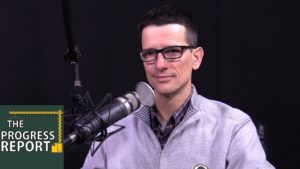Should U.S. Make Daylight Savings Time Permanent?

March 26, 2022
On Tuesday, March 15, 2022, the Sunshine Protection Bill of 2021 passed the Senate by a unanimous voice vote.
The bill would make Daylight Savings Time, which is currently in effect from March 13, 2022, to November 6, 2022, permanent.
Daylight Savings Time, or DST, is a clock shift one hour forward in the interest of longer days and a better use of sunlight.
Supporters of the Sunshine Protection Act claim it would bring brighter evenings, stimulate economic activity and encourage Americans to go outside.
However, the bill has its fair share of opposition, too, especially in Wisconsin, where the sun would not rise until after 8 a.m. about 80 days of the year under this new legislation.
Many have raised concerns on this point, saying that this would worsen driving conditions and cause more roadway accidents. It would force school kids to walk or catch a bus to school in the dark.
DST was initially implemented in part to lower energy usage, but findings by the Bureau of Economic Research indicate that it actually increases it by one percent.
Regardless, the bill does have some upsides.
It is estimated that teenagers lose around two and a half hours of sleep when the DST clock change occurs, which can increase mental health problems and cause the onset of SAD, seasonal affective disorder.
In addition, the American College of Cardiology states that there is a 25% increase in heart attacks on the Monday after DST goes into effect.
The American Academy of Neurology says that, in those 65 and older, there is a 20% increase in ischemic strokes in the two days following. By eliminating the clock change, advocates claim, we could improve upon the health of adults, teenagers and the elderly.
But that argument is countered by the other medical experts who state that DST creates Circadian misalignment, as well as cortisol and melatonin disruptions that create a mismatch in timing between our biological rhythms and the outside world.
Teenagers and adolescents, in particular, have a delay in the brain’s natural signal that helps them fall asleep, which is worsened by extended evening light of daylight saving time.
Standard time is better aligned to the timing of our daily work, school or sleep routines, some say.
“It most closely approximates natural light, with the sun directly overhead at or near noon,” says Vanderbilt University neurology professor Beth Ann Marlow.
Over the last four years, 18 states have passed laws in favor of a year-round time system; however, they would need Congress’ approval to be enacted.
It is important to think critically about this and every bill; it would still need to pass the House and be signed by President Joe Biden to become law, but it has caused many to re-evaluate the current system of time.

































Becky L Bain • Apr 4, 2022 at 12:59 pm
Excellent reporting, Cassi! Dr. Zubin Damania has an interesting YouTube video about this subject: https://www.youtube.com/watch?v=bb3wn_TBCf0